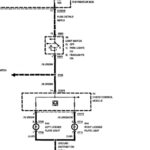The ongoing discussion around mandatory Multi-Factor Authentication (MFA) in platforms like GitLab has sparked a critical debate, and it feels like we’re getting lost in the details while overlooking a potentially larger issue. While everyone is focused on refining the implementation of these security changes, a crucial question remains unanswered: do the statistics even justify such a sweeping change in the first place?
Consider the vast landscape of GitLab’s free user base. Out of the thousands upon thousands of users, what percentage are actively utilizing MFA? Among those who have embraced MFA, how many have ever encountered the need for an MFA reset? And drilling down further, of those reset requests, how many were improperly granted due to vulnerabilities that this new measure aims to address?
GitLab, possessing the actual figures, is in the best position to answer these questions. However, from an outside perspective, it’s hard to shake the feeling that this policy shift might impact a massive number of accounts, potentially disrupting the workflows of countless users, all in the name of preventing a relatively small number of security breaches. We risk causing significant inconvenience and potential account lockouts for a large user base to mitigate a problem that might only affect a fraction of that user base. The core principle should be to maximize benefit while minimizing harm, and it’s questionable whether this change aligns with that principle. It feels like we might be harming more users than we are helping.
Alt text: Vintage car steam gauge cluster panel, possibly hinting at outdated security systems, but reliably indicating pressure, relevant to system integrity, and indirectly referencing ‘steam 219050’ as a non-digital, mechanical measurement system.
This isn’t just about abstract security policies; it’s about the real-world impact on users. For many, GitLab isn’t just a platform; it’s a repository of their work, their projects, and their professional history. The prospect of losing access to everything due to a minor misstep in a more rigid MFA system is genuinely concerning. This update places an immense burden on the user to be absolutely perfect, all the time. Human error is inevitable, and even with backup codes meticulously saved and alternative SSH keys in place, unforeseen circumstances could lead to irreversible data loss.
The potential for accidental account lockout and the subsequent loss of valuable work far outweighs the likely benefit of preventing a small number of improper MFA resets. Account recovery processes, even when breaches occur, are often swift and effective. Introducing a measure that carries such a significant risk of permanent account destruction feels disproportionate to the problem it aims to solve.
Therefore, GitLab should seriously reconsider this mandatory approach. At the very least, this should be offered as an opt-in feature for users who desire enhanced security, rather than a blanket policy that could inadvertently punish a large segment of its user base. The nuclear option of potentially locking users out of their accounts permanently should only be considered as an absolute last resort, and it’s hard to see how it’s justified for the average user in this scenario. Prioritizing user experience and carefully weighing the statistical necessity of such drastic changes is crucial for maintaining trust and ensuring GitLab remains a user-friendly platform.
